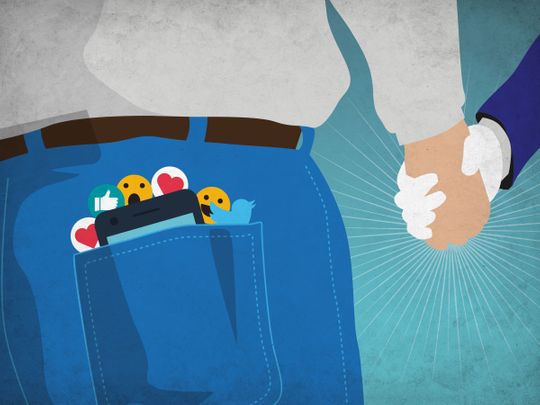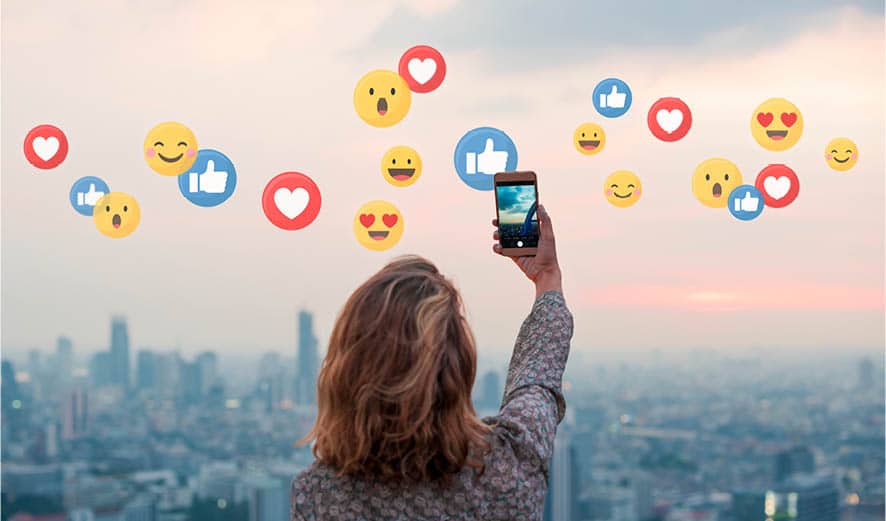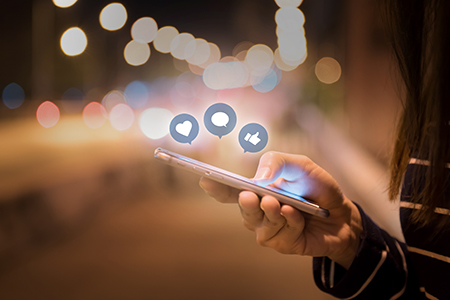By Stella Vasileiadou,
What would you do if someone asked you to deactivate all your social media profiles? Or go a year without wi-fi? Could you bear it? Researchers claim that almost 20 percent of social media users cannot stand more than three hours without using them.
Nowadays, thanks to social media platforms such as Facebook, Instagram, Twitter etc., the whole world is within our reach. For instance, you are able to connect with your loved ones wherever they might be via chat and/or video calls, meet new people, watch videos, or even find a job! Plus, studies have shown that spending time on social media leads to a dopamine level increase in your brain, which makes you feel like you have been rewarded for something laudable. But what if this “innocent” activity is starting to distract you from your daily routine and tasks and control your life over time?
How do I know if I am using social media excessively?
It goes without saying that a very basic sign of social media addiction is the feeling of anxiety you get when you are unable to get access to your account on social media. How many times have you sat in a café and before even ordering, you asked for the Wi-Fi password? Or how often do you get a mini heart attack when your Wi-Fi is lagging? If such behaviors sound familiar to you, well, then you probably are spending too much of your valuable time on social media.
Another sign of problematic social media use is whether you check your phone all the time to see the amount of likes your post (or someone else’s post) has gotten. Did you get mad when the photo you uploaded today on Instagram did not get as many likes and comments than the previous ones you have posted? Are you constantly refreshing the page to see who viewed your Facebook story? If you do so, that implies that social media do mean a lot to you.
In addition, social isolation is another indicator of social media addiction. But how can that be? Taking into consideration that the reason social media were created was to help people keep in touch, it sounds kind of odd, doesn’t it? Well, your FOMO (Fear Of Missing Out) is making you seem or act distant because you are checking on your phone all the time to stay connected with the virtual world. But unfortunately, the opportunity cost of this, is a person’s withdrawal from the real world around him: family, spouse and friends.
Strategies to overcome or prevent social media addiction:
First thing you can do is to turn off the notifications on your social media accounts, so that you will not be tempted to reach out to your phone every once in a while. In this way, you will check your social media whenever you really want to and not as soon as your phone pings.
Secondly, you can set a timer to track how much time you are spending on social media activity. This can be done by downloading a time management app such as Toggl, or simply even using your timer on your phone’s settings. P.S: Facebook recently launched a tool via which you can find out about “Your time spent on Facebook” and even set your personalized time limit. You can find this on your Facebook settings. By doing this, you will be able to set your daily goal of social media use and track your progress.
Another thing you can do to limit your time dedicated to social media is to start practicing a new hobby that does not require the use of technology. This could mean that you start drawing, singing, playing a musical instrument, enroll to a theater or cinema club, going to the gym, reading a book, or even meeting a friend. Your brain certainly needs a detox to function properly and social media is not helping with that at all.
Moreover, some people maintain that they were helped by limiting their access to one single device. Deleting your social media apps from your smartphone may be an efficient way to decrease the amount of time spent online because you will have to do the whole progress from the beginning and not just open a new tab to see what you missed instantly.
Undoubtedly, we do not have the right to blame social networking sites for being addictive or for being harmful to our mental health and dropping our productivity levels. Social media are a boon and a bane. The main question is whether we are using them in a way that they can be beneficial to us or letting them take over our lives. Besides, there is an ancient Greek proverb that seems to be useful in all aspects of life: “Pan metron ariston”, meaning all in moderation. Excessive use never did anyone any good.
References
- ‘What are the downsides of social media addiction?’, Healthline. Available here
- ‘Excessive Social Media Use Comparable to Drug Addiction’, VeryWellMind. Available here
- ‘How to Stop Social Media Addiction | Chicago, IL Addiction Recovery’, Urban Balance. Available here
- ‘Addicted to Social Media?’, Psychology Today. Available here
- ‘Are You Addicted to Social Media?’, News Medical. Available here






